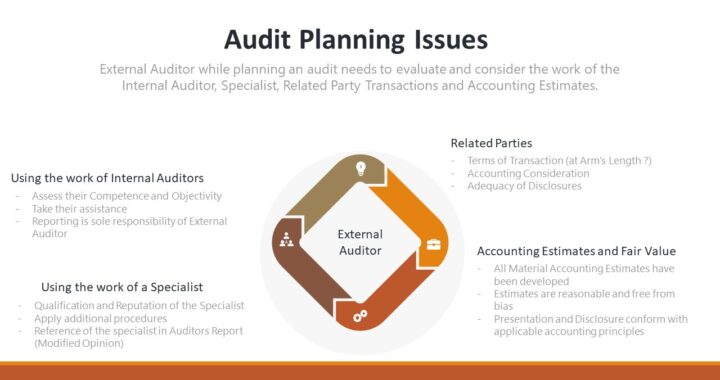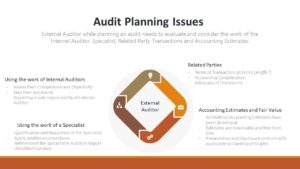Documentation of Audit Plans include:
The overall audit strategy (basis of the audit plan)
Procedures to be performed
Risk assessment procedures
Further procedures
Other procedures
Involvement of specialists
Three aspects of audit procedures should be documented in audit plans are:
NET of procedures
N = Nature
E = Extent
T = Timing
Factors external auditors consider before using the work of internal auditors are:
The objectivity of the internal auditors
The level of competence of the internal audit function
Whether the internal audit function applies a systematic and disciplined approach
Factors auditors consider before using the work of a specialist are:
The auditor should evaluate whether the auditor’s or management’s specialist has the necessary
Competence,
Capabilities, and
Objectivity.
Transactions that may suggest related-party transactions are:
Exchanging property for similar property in a nonmonetary transaction
Borrowing or lending at rates significantly above or below market rates
Selling realty at a price materially different from its appraised value
Making loans with no scheduled repayment terms
Accounting estimates
The objective of the auditor is to obtain sufficient appropriate audit evidence about whether accounting estimates, including fair value accounting estimates, are reasonable and related disclosures are adequate. This is achieved by determining whether
Management has appropriately applied the applicable financial reporting framework
The methods for making the accounting estimates are appropriate and have been applied consistently
The estimates, individually or collectively, exhibit no significant management bias
If you have found this blog to be useful, you may share with your friends. Thanks!




